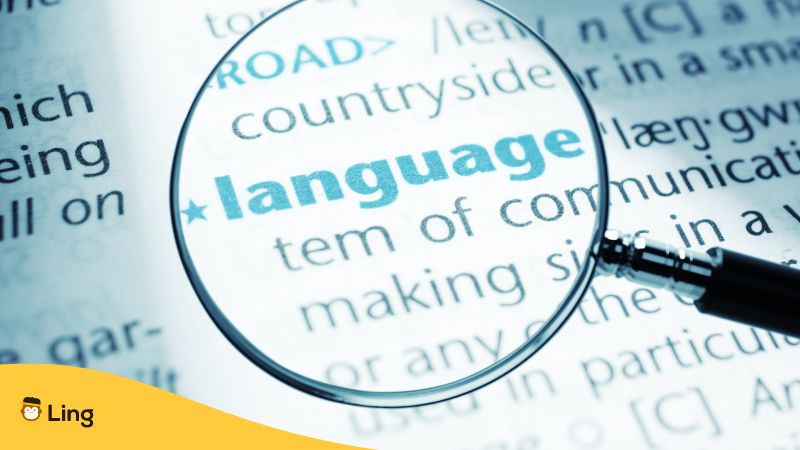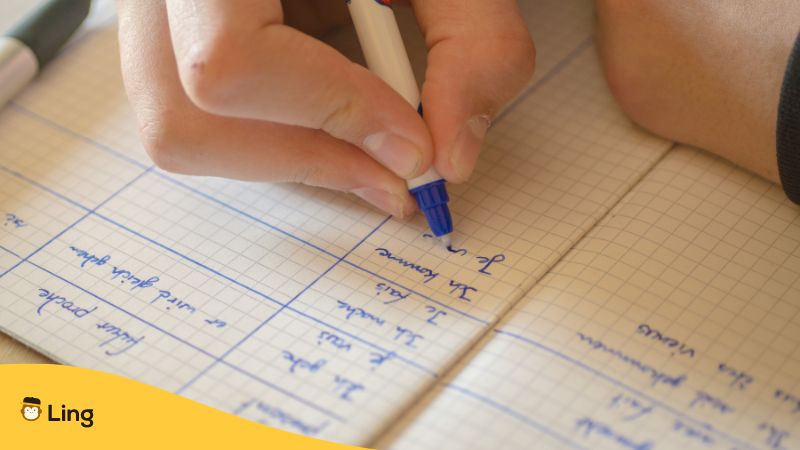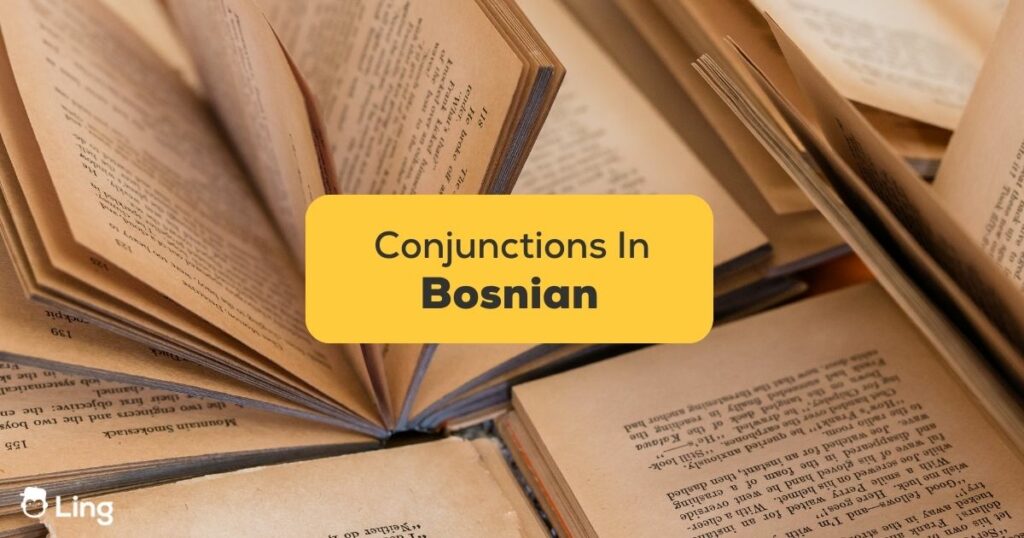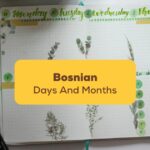Unsure what conjunctions in Bosnian are? Hold on to your grammar hats, dear language enthusiasts, because we’re about to dive into the captivating world of conjunctions! And not just any conjunctions, we’re talking about conjunctions in the Bosnian language. “Wait, what? Why Bosnian?” you might ask. Well, let me tell you, there’s something magical about this Balkan language that often flies under the radar.
Remember those glue-like words that bring sentences together in English? Those tiny but mighty words like “and,” “but,” and “or”? Those are conjunctions. Now, imagine the thrill of exploring these essential building blocks in a whole different language. That’s where our Bosnian adventure begins!
If you’ve ever dreamed of winding through the picturesque streets of Sarajevo or enjoying the traditional Bosnian coffee while striking up a conversation with a local, then this article is your ticket. Learning about conjunctions is like cracking the code to a new culture, unlocking doors, and finding hidden connections.
Bosnian isn’t just another language; it’s a rich tapestry of history, culture, and beauty. And by understanding its conjunctions, we’re taking a step closer to embracing this unique linguistic heritage. So buckle up, grab a pen or your favorite note-taking app, and let’s take this thrilling linguistic ride together! Whether you’re a language lover, a curious traveler, or just someone looking for a unique twist to your day, this journey is for you.
What Are Conjunctions In Bosnian Grammar?
In the Bosnian language, conjunctions, or “veznici” (везници) as they are known, play a crucial role, just like in any other language. Let’s break it down a bit more. It comes from the Bosnian verb “vezati,” meaning “to tie” or “to connect.” This connection gives us a hint about the purpose of conjunctions. They act like little linguistic bridges, connecting words, phrases, or clauses within a sentence.
In Bosnian, there are mainly two types of conjunctions:
- Coordinating Conjunctions: Words like “i” (and), “ali” (but), and “ili” (or) connect equal parts of a sentence.
- Subordinating Conjunctions: Words like “ako” (if) and “jer” (because) connect a main clause with a subordinate clause.
For anyone starting their journey in the Bosnian language, understanding conjunctions is like learning the basic rules of the road. Here’s why:
- They help in structuring sentences, making them more complex and interesting.
- Conjunctions add flow and smoothness to conversations, helping you sound more natural.
- Aids in comprehension, helping you understand native speakers more easily.
- By understanding these small but vital words, you’ll also tap into the nuances of Bosnian culture and expression.

Coordinating Conjunctions In Bosnian
Coordinating conjunctions, or “koordinirajući veznici” in Bosnian, are like the basic connectors in a puzzle of words. They link words, phrases, or clauses of equal rank within a sentence. Simple in form, they hold great power in shaping the way we communicate.
Examples And Usage
Here are some common examples of coordinating conjunctions in Bosnian:
- “i” (and): Used to connect similar ideas or things.
- Example: “Volim knjige i filmove.” (I love books and movies.)
- “ili” (or): Utilized to offer a choice between two or more things.
- Example: “Želiš li kafu ili čaj?” (Do you want coffee or tea?)
- “ali” (but): Offers contrast or an exception to something previously mentioned.
- Example: “Želim ići van, ali je kiša.” (I want to go out, but it’s raining.)
- “ni…ni” (neither…nor): Connects two negative options, where both are equally applicable.
- Example: “Ni on ni ona ne dolaze.” (Neither he nor she is coming.)
- “pa” (so, then): Used to denote a consequence or result.
- Example: “Bio je umoran, pa je zaspao.” (He was tired, so he fell asleep.)
Coordinating conjunctions in Bosnian are not just essential grammar tools; they’re the threads that weave together thoughts, making them clear, logical, and compelling. By using them correctly:
- You can create smoother transitions between ideas.
- You can enrich your conversation by adding complexity without confusion.
- You enable yourself to articulate thoughts more naturally, mirroring native speakers’ patterns.
If you’re learning Bosnian, paying attention to these conjunctions is like fine-tuning your vehicle for a smoother ride. Practice using them in sentences, listen to how native speakers employ them, and don’t be afraid to experiment with them in your dialogues.

Subordinating Conjunctions In Bosnian
Subordinating conjunctions, known as “podsloženi veznici” in Bosnian, are a special kind of linguistic magic. They’re the words that tie together main clauses with subordinate (dependent) clauses, adding depth, complexity, and nuance to sentences.
Examples And Usage
Here’s a look at some key subordinating conjunctions in Bosnian, along with how they are used:
- “ako” (if): Used to introduce a condition.
- Example: “Ako kiša prestane, ići ćemo u šetnju.” (If the rain stops, we will go for a walk.)
- “jer” (because): Indicates a reason or cause.
- Example: “Nisam išao van jer sam bio umoran.” (I didn’t go out because I was tired.)
- “dok” (while): Refers to something happening at the same time.
- Example: “Dok sam čitao, telefon je zazvonio.” (While I was reading, the phone rang.)
- “iako” (although): Introduces a contrast or contradiction.
- Example: “Iako je bilo hladno, izašao je bez jakne.” (Although it was cold, he went out without a jacket.)
- “kako” (as, how): Can be used to explain a manner or introduce indirect speech.
- Example: “Rekao je kako će doći sutra.” (He said that he would come tomorrow.)
For those learning Bosnian, these conjunctions are like adding spices to a dish – they bring flavor and complexity. Some ways to master them include:
- Practicing with real-life examples and conversations.
- Listening to native speakers to understand how these conjunctions flow within sentences.
- Experimenting with writing and speaking, using these conjunctions to enrich communication.
Learn Foreign Languages With Ling
And there we have it, the exciting world of conjunctions in the Bosnian language, unveiled just for you! From coordinating to subordinating conjunctions, we’ve explored how these linguistic tools can add depth, clarity, and authenticity to your Bosnian communication.
But here’s the thing – reading about them is just the starting point. Now, it’s over to you to dive in, explore, and put these conjunctions to practice. Want a fun and interactive way to take this learning to the next level? How about trying the Ling app?
The Ling app is designed with language learners like you in mind. It offers interactive lessons, real-life examples, and engaging exercises tailored to help you grasp Bosnian conjunctions (and much more!). Whether you’re a complete beginner or looking to polish your skills, the app provides a flexible and entertaining pathway to becoming more fluent in Bosnian.
So go on, take the plunge! Download the Ling app from the App Store or Play Store and let your Bosnian language adventure truly begin. Who knows? Those conjunctions might just be the gateway to your next great cultural exploration, heartfelt conversation, or even a life-changing trip to Bosnia.



































































